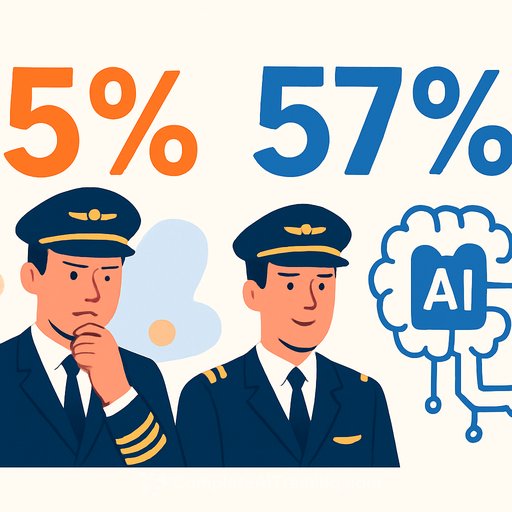The Leadership Blind Spot: Why Executive AI Literacy Will Shape Business Outcomes in 2025
August 23, 2025
Artificial intelligence (AI) is no longer just a technical tool behind the scenes. It’s quickly becoming a central factor in business decisions. The real competitive edge won’t come from the technology itself, but from leaders who grasp AI’s risks and potential deeply enough to govern it well and align it with their strategy.
Today, many executives focus on building AI infrastructure, selecting tools, or ticking regulatory boxes. But as AI starts to influence—and often automate—key strategic choices, what matters most is the fluency of the people leading these changes. AI is becoming a decision-making partner across pricing, product development, supply chains, customer engagement, and risk management. By 2027, it’s expected that half of business decisions will be augmented or automated by AI agents. These agents move fast and handle huge volumes of data, but they lack context and human judgment. That makes executive oversight essential.
From Delegation to Accountability
For years, AI was the domain of data scientists and tech teams, while executives focused on outcomes. That setup no longer works. AI now directly impacts revenue, compliance, and brand reputation. Leaders must move from passive sponsors to active participants. They need to ask how AI systems reach conclusions, what data feeds them, and where risks might emerge.
Without this fluency, executives risk approving AI projects they don’t fully understand, overestimating AI’s capabilities, or missing governance gaps. In a world where AI’s influence is growing fast, this blind spot isn’t just inefficient—it’s a risk to the business.
AI Literacy Is Strategic Literacy
Executive AI literacy doesn’t mean coding or deep technical skills. It means having strategic intelligence: questioning assumptions, assessing risk, and ensuring AI initiatives fit long-term priorities.
Leaders with this literacy can spot flawed logic or overhyped claims and decide where to invest, how to govern, and when to pull back. It also improves communication between business and tech teams, making sure AI drives real value instead of just ticking a technology box.
According to Gartner, by 2027, organizations that emphasize AI literacy among executives will see 20% higher financial performance compared to those that don’t.
From Briefings to Immersive Learning
Executives need more than reports or vendor demos to build genuine AI fluency. They must engage hands-on—testing AI pilots, prototypes, and real-world applications.
For example, a supply chain leader might try an AI tool that reallocates stock based on predicted demand. A marketing executive might use synthetic data to model campaign results without exposing sensitive customer details. These experiences sharpen judgment and reveal AI’s limits.
Synthetic data is a key case. It supports privacy and diverse training but can introduce risks if poorly managed. Leaders who understand how synthetic datasets are created and validated ask the right questions before problems arise.
The Governance Mandate
AI’s role in operations and strategy will only grow. Boards and C-suites will need to govern AI with the same rigor they apply to finance or cybersecurity.
This means more than awareness—it means informed oversight. Leaders must understand how AI systems work, how data is structured, and how bias or errors can creep in. They’ll be expected to challenge AI-generated insights and decisions robustly. AI governance must become a strategic priority, enabled by executive literacy.
A Global Imperative
Regulatory approaches vary worldwide—from the EU’s AI Act to emerging rules in Asia and North America—but the core demand is consistent: responsible AI use backed by capable leadership.
This isn’t a regional issue. It’s a global shift in expectations for how leaders engage with AI. Companies that get ahead will have executives who balance innovation with governance, speed with safety, and experimentation with accountability.
Leading the Next Phase
AI adoption will only accelerate. But no matter how advanced the technology becomes, its impact depends on leadership.
Executive AI literacy is essential to building resilient, forward-thinking organizations that perform well over time. Investing in these skills today positions leaders and their companies to thrive.
For executives ready to deepen their AI knowledge and governance skills, Complete AI Training offers targeted courses designed specifically for leadership roles.
Further insights on this topic will be discussed at the upcoming IT Symposium/Xpo in Barcelona, from November 10-13, 2025.
Your membership also unlocks:






